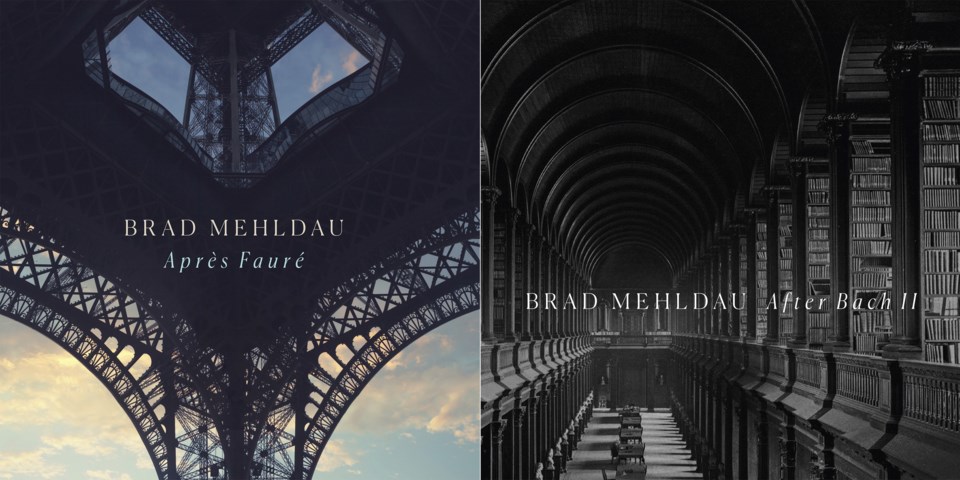Grammy-award winning jazz pianist Brad Mehldau connects the dots as though they were so many 16th notes.
His two new albums, “After Bach II” and “Après Fauré,” use classical music as a foundation for solo explorations that draw a through line from Art Tatum to Thelonious Monk to Bill Evans to Keith Jarrett to Philip Glass. It all sounds like Mehldau, and it all goes back to Bach.
The hybrid sets are out Friday, May 10, and “After Bach II” is a sequel to Mehldau’s absorbing 2018 album, “After Bach.” Once again, interpretations of Bach pieces alternate with original compositions inspired by him. “Après Fauré” follows a similar format, with the French composer’s work bookending four short original Mehldau compositions.
It’s music to delight a church choir or nightclub crowd. And, as Mehldau writes in the liner notes for the Fauré album, “music that breathes austerity and weirdness.”
The Fauré set includes his final two nocturnes, minor-key pieces written in 1915 and 1921. Their restless, romantic melancholy inspires dark, discordant elements in Mehldau’s own pieces, which are filled with percussive, searching music that underscores how Fauré’s work anticipated jazz.
There’s also a link between Jelly Roll Morton and J.S. Bach, which Mehldau has long embraced and celebrated. The new Bach album features graceful, persuasive interpretations of familiar material, including five pieces from Book I of The Well-Tempered Clavier. Mehldau describes the Fugue in A minor as an exploration of Bach’s funkiness, and it unspools as freely as a jazz solo, while the familiar melody of the Prelude in E major breaks out like sunshine.
Bach was an acclaimed keyboard improviser, so it’s fitting his Goldberg Variations are treated to Mehldau’s improvised variations. The seven include two in a 5/8 time signature and one in 7/4, creating a weird and wild flow that is very 21st century.
Mehldau’s variations are bracing and daring, breathtaking and beautiful, spiritual and psychedelic. Blue notes emerge from the contrapuntal complexity as he tests the limits of Bach’s music, showing there are none.
___
AP music reviews: https://apnews.com/hub/music-reviews
Steven Wine, The Associated Press



